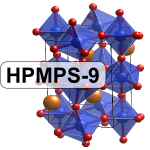The most accepted petrological assembly for the upper mantle is composed of olivine, orthopyroxene, clinoyroxene and garnet. The most accepted petrological assembly for the upper mantle is to be the peridotitic rock which typically composed of olivine, orthopyroxene, clinoyroxene and garnet. Among these four major mineral phases, the olivine and garnet phases remain the same crystal structure under upper mantle conditions while the clinopyroxene phase is possessing monoclinic system till dissolved into garnet. The Mg-rich opx is the only one phase possessing polymorphism at upper mantle conditions, to a high clinoenstatite (hereafter HP C2/c) at normal (warm) mantle conditions. Most recent high pressure X ray diffraction experiment revealed a new high pressure monoclinic phase with space group P21/c (hereafter HP P21/c) over pressure of 10 GPa, room temperature in opx (Dera et al., 2013). Interestingly, across this particular transition, the elastic velocity was shown to be softening.
To understand the Earth's thermal state, the thermal transport properties of mantle phases are desired. In this study, we are interested in thermal conductivity of the pyroxene phases under high pressure and across the phase transition. To carry out such measurement, a technique “Time-domain thermoreflectance” (TDTR) will be employed interfaced with diamond anvil cell to measure the thermal conductivity of orientated single-crystals.
The thermal conductivity of Fe-bearing opx and diopside were obtained in different crystallographic orientations up to 12 GPa. A discontinuity in the thermal conductivity of opx was observed due to the phase transition. In this meeting we present the details of measurements and the comparison with that of olivine phase.

 PDF version
PDF version
